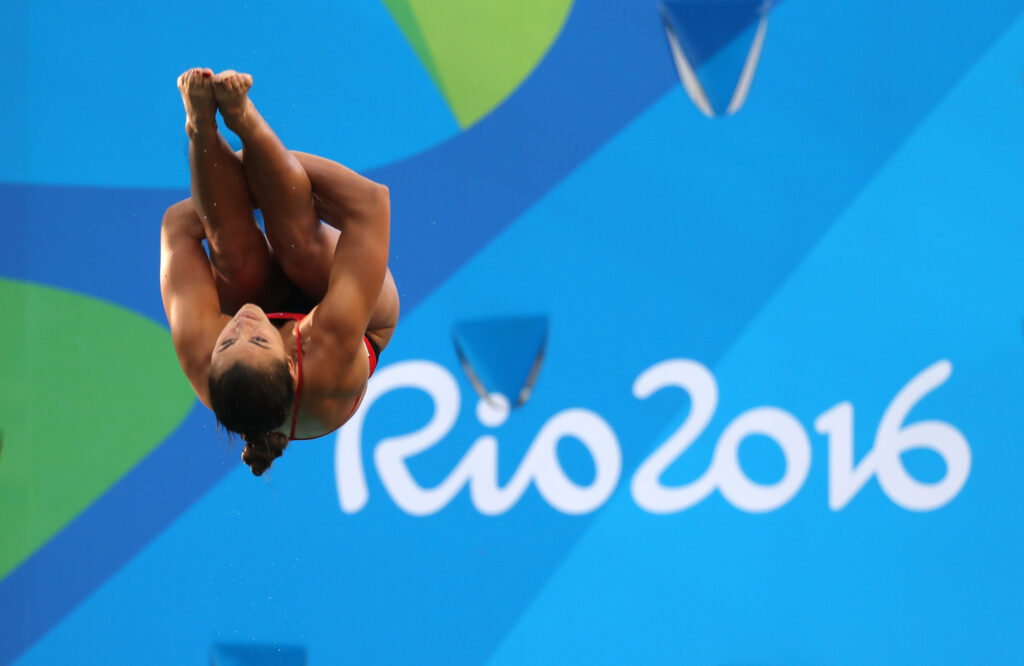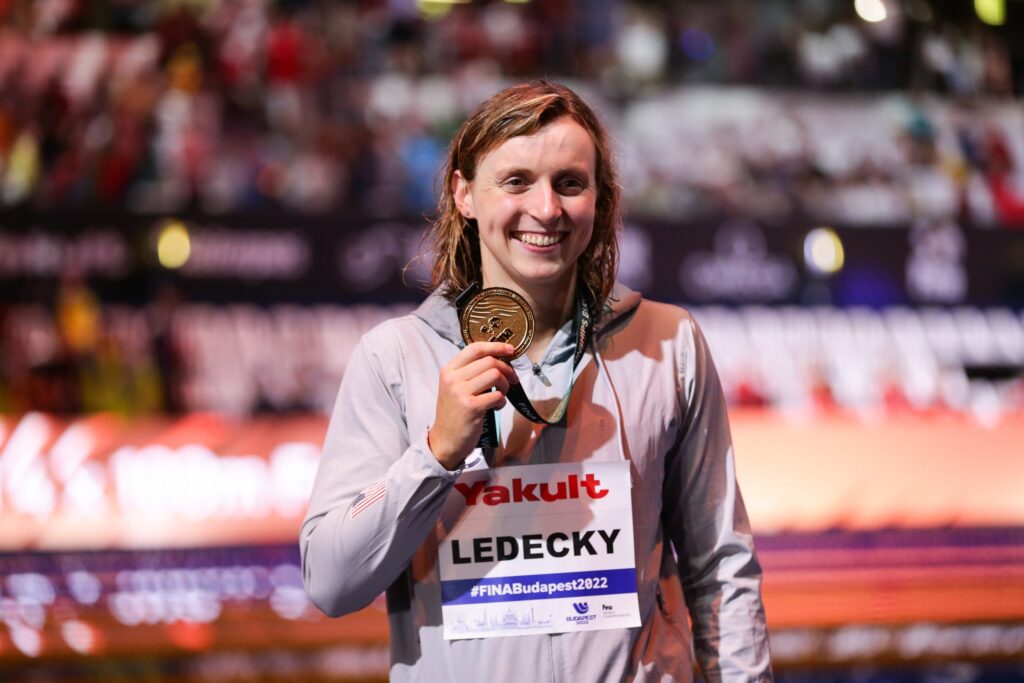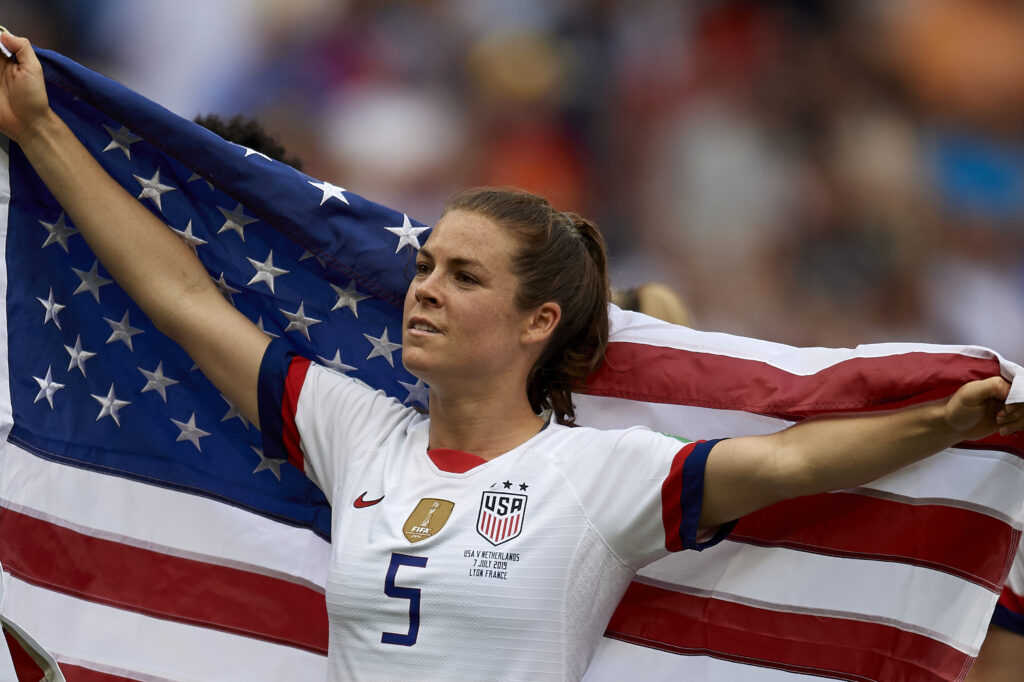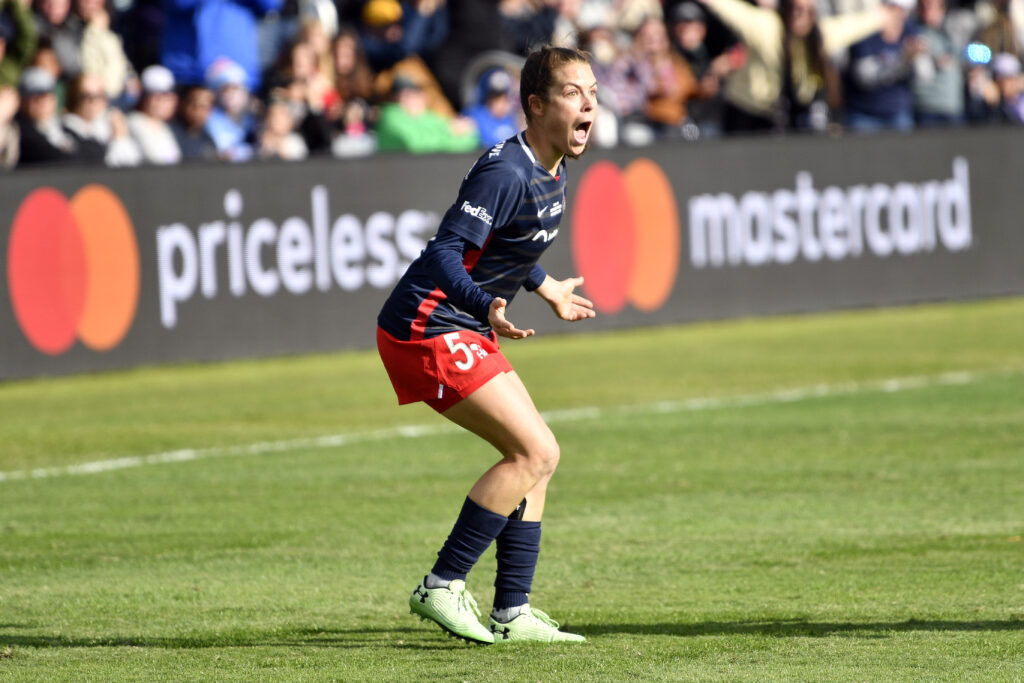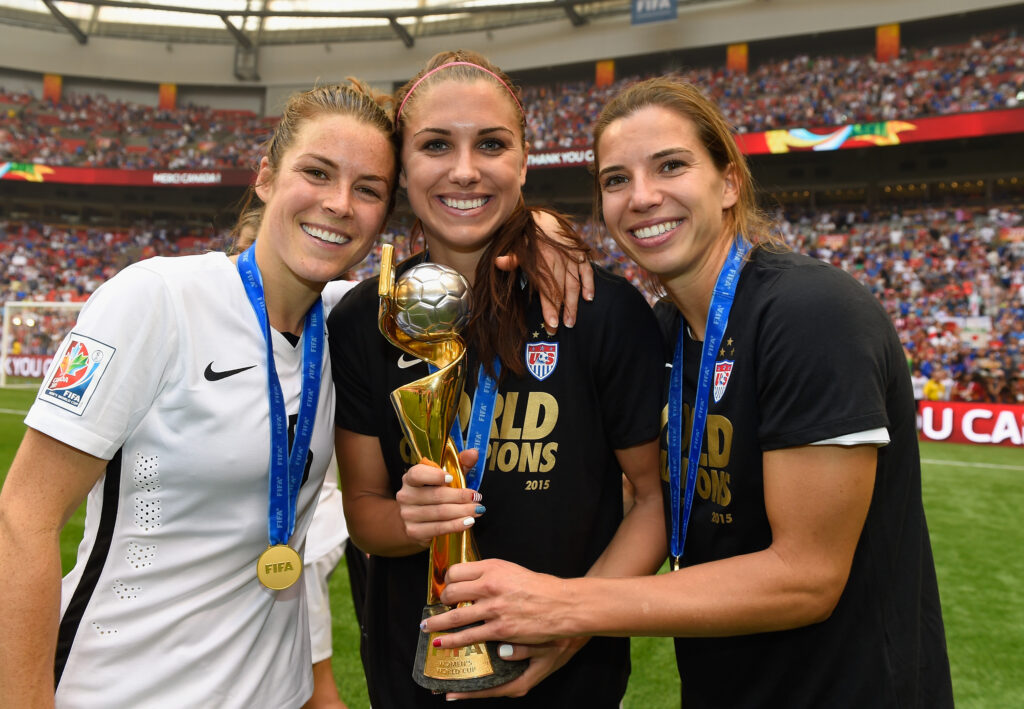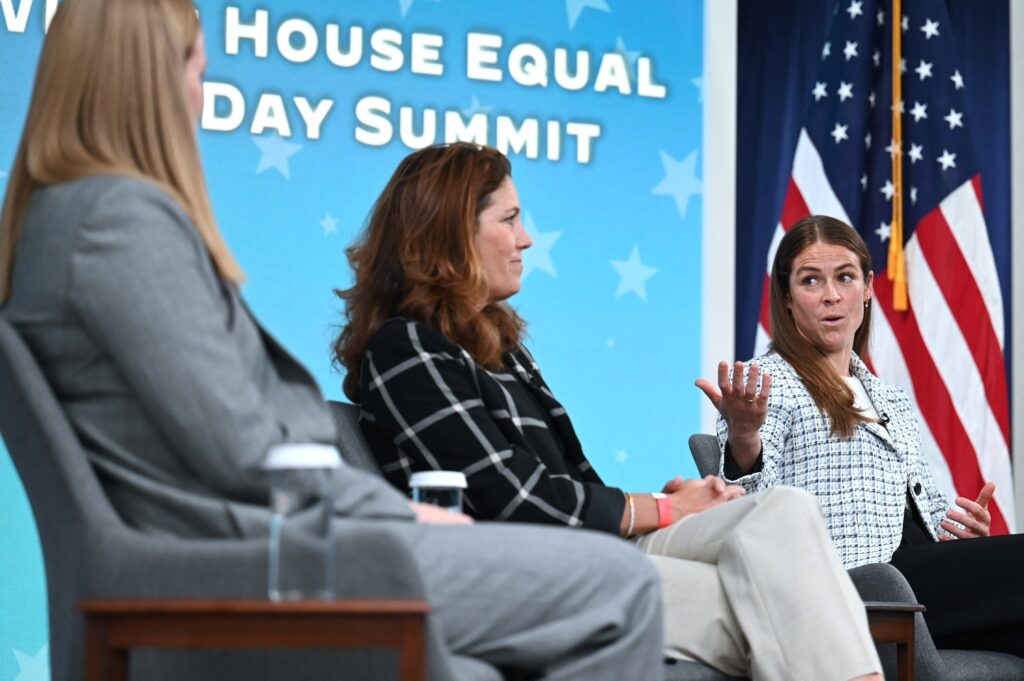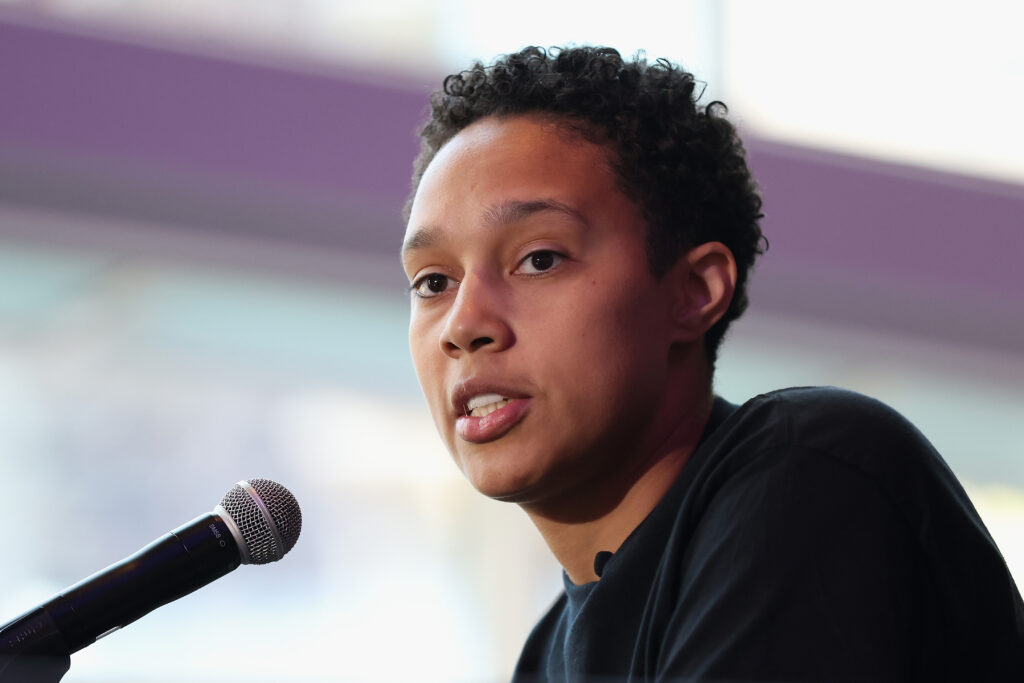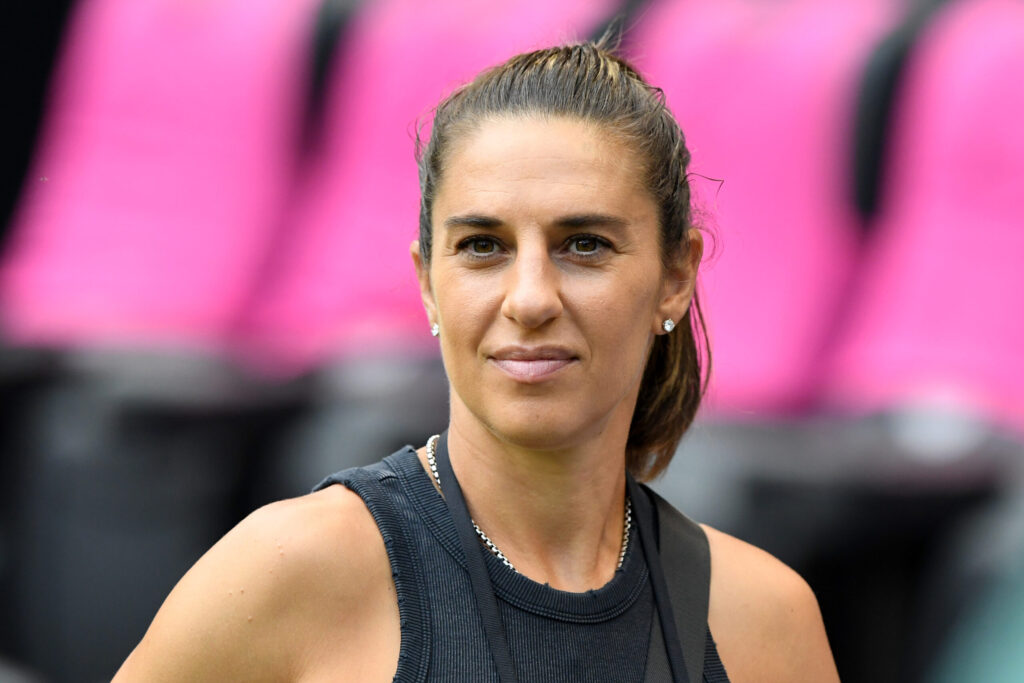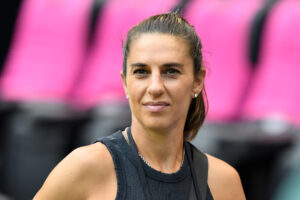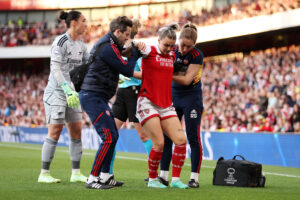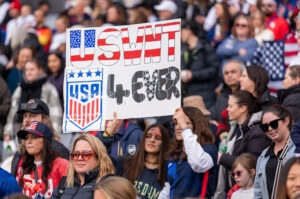Kassidy Cook is an American diver who placed 13th in the women’s 3 metre springboard at the 2016 Rio Olympics. A graduate of Stanford University, Cook competes in both the individual 3m springboard and the synchronized 3m springboard. As with countless athletes across the world, Cook’s training has been forced indoors due to the spread of the coronavirus. Below, she talked with Just Women’s Sports about how she’s handling quarantine, what the Olympics’ postponement means to her, why she walked away from the sport, and what brought her back.
Where were you when sporting events started getting canceled due to COVID-19?
In February, I was in Madrid and then Rostock, Germany for a competition called the Grand Prinx. And then that’s when all this kind of started. We heard about all the cases in China and we noticed that a lot of the Chinese divers were absent from the competition because, at the time, they weren’t allowed to leave their country. Even then, I don’t think anyone knew the virus would turn into what it has become.
What were the following weeks like?
I went home to Texas toward the end of February to train, and that’s when the pandemic situation started escalating. Sports left and right were getting canceled or postponed, and I started wondering what was going to happen to diving. At the time, we had the World Cup coming up, which was supposed to be the Olympic qualifying event, and then obviously the Olympics this summer. But as the days went by, more cases just kept popping up, and there was a lot of uncertainty. It was a strange time because Olympic hopefuls like me were still training and practicing, but it was hard not to think about the virus. It was definitely distracting and worrisome. Then our pool shut down, and there wasn’t a place for me to train, and they still hadn’t announced whether the World Cup or the Olympics were going to be cancelled or postponed. So I had nowhere to train and no idea if I was still going to go to my competition, and it still wasn’t clear what this virus was going to become.
What was your reaction when the Olympics were officially postponed?
It was obviously the right move given the severity of the virus, but at first, I was definitely upset. I had quit my job and moved back home to Texas from San Francisco to train for the Olympics, so to hear that they weren’t going to happen this year was really hard. But a couple days after I gave it some real thought, I realized that the postponement actually was a good thing. The world is in such a hectic state right now. No athlete has anywhere to train. A lot of people are mentally and physically unhealthy. And you have to put it in perspective — the health of the citizens of the world, the citizens of our country, come above sport. And the silver lining is that I now have an additional year to train and get as good as I can for the Olympics.
Where is your head at now?
Well, you have to make sacrifices for the Olympics regardless. So for me, making the sacrifice of another year is not a big deal, in the grand scheme of things. There is no question that I am going to keep training. People were feeling bad for me when they first heard about the postponement, telling me how it must suck to be an athlete right now. And I’m just like, it sucks for everyone, the whole entire world, athlete or not. Things are getting canceled, people are losing their jobs, family and friends are getting sick and dying. So I should be the last person to feel sorry for. I’m hanging in there and at the end of the day, it’s just a sport. The health of my family and community will always come above that.
How much of an impact will taking a few months off have on your future performances?
It’s tough for divers, because it’s not like we can just go for a run outside and call it a day. Diving requires very specific training, and it’s hard to stimulate the jumping movements at home. But regardless, you can still keep up with your physical fitness by doing bodyweight exercises and you can stay mentally focused by doing a lot of visualization. Diving is a big mental sport. People always say that if you could turn off your brain, you would be a better diver because your muscle memory would take over. So if you can practice visualizing what you would do off the board and model it on the ground, I think it can help with the mental aspect of the sport. At the same time, since a lot of diving is muscle memory, I’m not too worried about getting some time off.
What kind of workouts have you been able to do while under quarantine?
My team has also been doing daily workouts on Zoom to stay on schedule. We meet at the same time every single day, and our coaches run us through the workout. It’s nice to be able to see everyone even if it’s not in person. It helps this hectic time feel a little more normal. In terms of workouts, it’s all bodyweight, plyometrics, core and stretching. These are things you can do anywhere. And it’s been fun to switch it up, plus it’s good to put your body in a state of confusion sometimes. It’ll get stronger in places where you didn’t know you were weak.
Overall, I’m trying to mirror my usual schedule as much as I can, just to keep my own sanity. I’m waking up at the same time as I would if I had practice, doing a workout in the morning when I would be having morning practice and then one in the afternoon. I want to do as much as I can during this time, because if others aren’t, it will give me a competitive edge. And on the other hand, I don’t want my competition to have an edge on me because I decided to slack off.
How does Olympic qualifying for diving work? You mentioned the World Cup — was there a specific result you needed to achieve there?
For diving, they don’t grant every country a spot at the Olympics. You have to earn your spot by placing well in competitions. And the World Cup, which was supposed to be in April, was the last chance for countries to qualify for the Olympics. So my first job was to go to the World Cup to earn the United States a spot. Not my personal spot, but a spot for our country. It’s a lot of pressure, because if you do poorly, you’re letting your whole country down by not giving anyone a shot to make the Olympics. I was put in the same shoes in 2016, when there were no spots for the United States going into the World Cup, but thankfully I performed well enough at the event to earn my country a trip to Rio.
This year, if I had performed well enough at the World Cup to get the US a spot in Tokyo, then we would have had the US Olympic trials in June, and that’s where I would have competed to get my own personal spot. I compete in two events: synchro and individual, so at the trials I would have had to win the synchro event and then get first or second in the individual event to qualify for the Olympics.
How do you handle that pressure of having to compete for the whole team during the World Cup?
I like having that pressure because I trust myself to deal with it. I’m a veteran, I’m experienced. And I hate to say it, but I don’t want to put my trust in somebody else getting the spot. I want to be the one up on the board.
Can you talk about the difference between the two events you compete in?
So I compete individually in the three-meter springboard. That’s the event I did in the 2016 Olympics. But this time around, I am also doing that event in synchro. That’s when two divers are diving at the same time. It’s so much fun because it has aspects of a team sport within an individual sport. My partner, Sarah Bacon, and I have known each other since we were young and are really good friends. We’re having a lot of fun doing synchro, and our timing is super natural, which doesn’t happen for a lot to divers. We’ve only been paired together for a few months, whereas some partners have been together for years. But because we have similar styles of diving, similar body types, and similar strengths, the hard parts about synchro come easy to us, which just makes it even more fun.
Have you two won any competitions together?
In the time we’ve been partners, we’ve won all of the competitions that we’ve competed in, and we’ve been told by international judges we have a really good chance of medaling at the Olympics. So it’s been refreshing to have that confidence from the judges and also to just be having so much fun with it. I think it’s made me a better individual diver because I’m just having a lot of fun at practice. I don’t have to internalize all these pressures anymore, because there’s somebody I can share the experience with.
How did your experience at the 2016 games motivate you during this current cycle?
The 2016 Olympics were a great experience, even though I didn’t compete as well as I wanted to. At the time, I was only about 20 years old. I was super young, and I think I let the outside pressures get to me. I definitely didn’t have the confidence I have now. I wasn’t heading into the Olympics that year thinking I could medal, I was just ecstatic that I was even there. But this next time around, I think my focus and maturity will really come in handy and will hopefully give me an edge that I didn’t have in 2016. But I mean, in Rio I had the time of my life and I came in 13th in the world. That’s not so bad.
You took some time off after the 2016 Olympics. How come?
So after I graduated from Stanford, I retired for a year. I had just been injured so many times and I wanted to be able to support myself with what I thought was a more legitimate job. I mean, you don’t make money from diving in the US, which is ultimately a driving force for a lot of athletes who retire after college because they need to make living. And for me personally, training would have meant moving back home, and to be completely honest, I was just embarrassed to do that.
But after working and living in San Francisco for a little bit, I started to really miss diving. I realized there would be other jobs waiting for me for the rest of my life, and that most of the negative energy I had about diving was all in my head. No one was actually going to care if I moved back home to train. And even if that was the case, I didn’t want to give up something I was passionate about just to please others.
Obviously your focus is day to day at the moment because of all the chaos. But looking past the 2021 Olympics, do you see yourself retiring again or continuing with the sport?
I think I’m going to keep competing for a while. I’m having a lot of fun with it, and as long as my body stays healthy and as long as I’m still enjoying what I’m doing, I would like to keep on going until at least the 2024 Olympics. But obviously, it’s day by day. Anything could happen. But now that I’ve started up again, I would love to keep it going.
